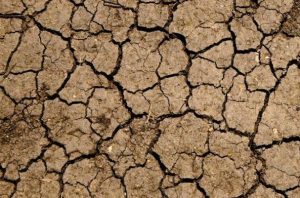Climate driven migration debate reaches a watershed
The impact of climate change on human displacement has come into sharp focus recently with a raft of new data and initiatives pointing to a looming emergency.
Climate Justice Activist Greta Thunberg and International Migration Organisation chief Antonio Vitorino have called for immediate action to help tackle the impacts of climate change on those forced to leave their homes.
The Greta Thunberg Foundation has donated 275,000 Euros (around $US269,000) to support IOM’s emergency response to the historic floods in Pakistan and the crippling drought in Somalia.
“We need to support people before they move, we need to support people while they move, and afterwards, it’s a chain of events,” Ms. Thunberg said. “We need to think holistically like in any other emergency.”
 With 20 million people displaced every year due to climate change, there is an urgent need to prevent global environmental crises and address the impacts of climate migration, an IOM statement said.
With 20 million people displaced every year due to climate change, there is an urgent need to prevent global environmental crises and address the impacts of climate migration, an IOM statement said.
“This is a question of life and death for countless of people having to flee because of the climate crisis,” Ms. Thunberg said.
Meanwhile, experts say governments must get to grips with the links between the climate crisis and the plight of migrants around the world as increasingly extreme weather becomes an increasing danger to already vulnerable displaced people.
Chief Executive of the International Rescue committee David Miliband says urged action is needed.
“We have done a really bad job of working together on this. That’s especially damaging given that these migrants and displaced people are the most vulnerable people, in conflict-driven parts of the world. These people have done the least to contribute to the climate crisis, but are among the most severely impacted,” Mr Miliband said.
“There is no doubt that some of the drivers of refugee numbers are conflict and climate change. Climate change has a direct and indirect effect on migration, and forced migration. It generally leads to internal displacement, to migration flows within countries,” he said.
At Cop27, governments agreed that the poor countries worst afflicted by climate breakdown be funded for loss and damage to help them recover and rebuild after extreme weather.
But the details on how this will work are yet to be worked out.
Also, worryingly, new research suggests climate change is slowing economic growth in the Global South which is reducing the capacity of people to migrate to escape climate catastrophe.
A research team from the Potsdam Institute for Climate Impact Research, in Germany, compared the observed migration flows related to climate change.
“Climate change reduces economic growth in almost all countries of the world,” the researchers said.
“But it has very divergent effects in poorer and richer countries. Overall, migration related to climate change has increased – but it has done so to a lesser extent than might have been expected. The reason is bitter: in poor countries, many people in need are lacking the means to migrate. They have no choice but to stay where they are,” they said.
“Economic growth affects national income levels, which in turn affect migration. Relatively few people migrate from high-income and from very low-income countries. In the case of poor countries, this is partly because many people simply cannot afford to leave,” the researchers said.












